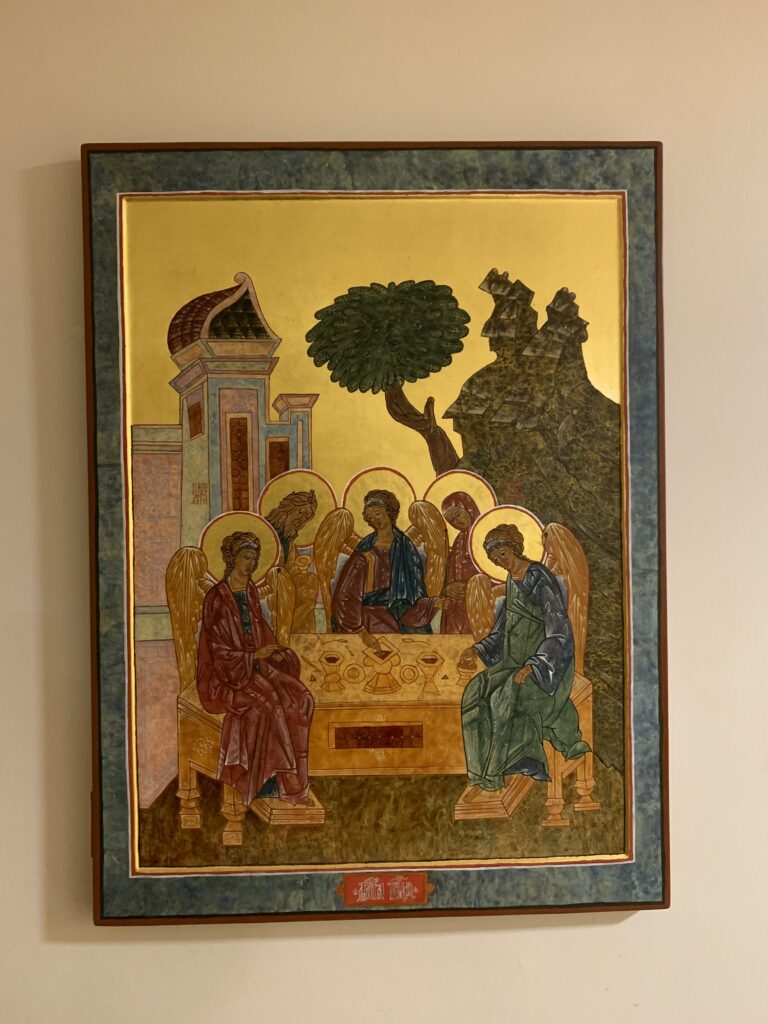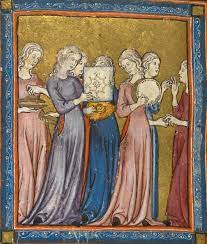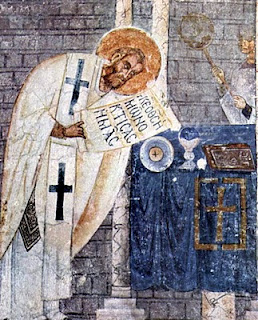
Blessed be the God and Father of our Lord Jesus Christ, the Father of mercies and God of all comfort, who comforts us in all our affliction, so that we may be able to comfort those who are in any affliction, with the comfort with which we ourselves are comforted by God. (2 Cor. 1:3-4)
St. Paul writes his second epistle to the Corinthian church about a year after he wrote 1 Corinthians. Some people think II Corinthians is actually parts of two letters put together. We know that the parish in Corinth kept having problems for a long time … St. Clement, one of the early bishops of Rome, wrote letters to the parish in Corinth because they were still having problems in AD 95!
St. Paul begins by blessing God the Father who comforts the Church. Nowadays “comfort” means “feel good” but the Father did not send his Son to make us feel good. “Comfort” used to mean “strengthen” or “make strong.” It means “to be strong with.” The Father gives his Son to make us strong to face affliction and to share this strength with others who are facing various afflictions.
This comfort–strength–is given us by the Holy Spirit. Many times the great preachers and teachers of the past identify the presence of the Holy Spirit with the Kingdom of God; to pray “thy Kingdom come” is asking for the Holy Spirit to come and dwell within us and among us. St. Gregory of Nyssa wrote:
But what does it mean to say that the kingdom of God is within us? It can only mean the gladness which comes from on high to souls through the Spirit! It is like an image and a deposit and a pattern of everlasting grace which the saints enjoy in the time to come. So the Lord summons us through the activity of the Spirit to salvation through our afflictions and to sharing in the goods of the Spirit and his own graces.
St. Gregory of Nyssa, On the Christian Way of Life
The Father shares the Spirit to us now so that we can begin to experience a little bit of what eternity is like. We are called to experience the gift–the presence–of the Holy Spirit not as the absence of affliction but as we are experiencing affliction. The presence of the Holy Spirit –Kingdom of God–is not to make us feel good but to enable us to already experience a little of what we will experience in eternity.
Afflictions are our chance to experience the victory of Christ now. Afflictions are the opportunity we have to know that God truly stands with us, no matter what. Afflictions are our chance to share the Good News with others, not by preaching and lecturing but by holding the hand of someone in pain and being strong together with them.
“Thy kingdom come!” The kingdom–the Spirit–is given to us to share, not to hoard for ourselves. The kingdom-Spirit-gospel-comfort is primarily a SOCIAL experience that God is WITH us here and now rather than an individualistic experience of “salvation.”


